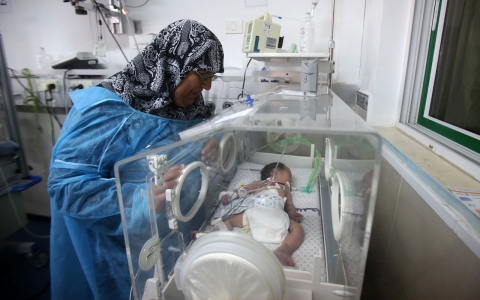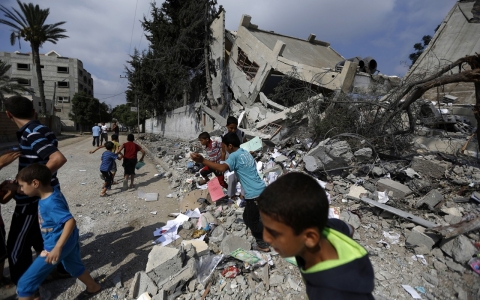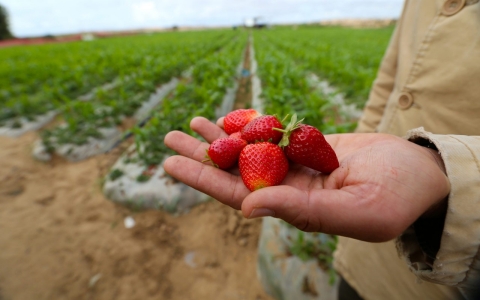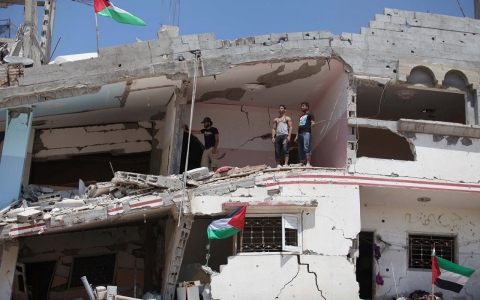The Gaza Strip, ravaged by successive wars and nearly a decade of Israeli blockade, could become uninhabitable for residents within just five years, the United Nations development agency said Tuesday.
"The social, health and security-related ramifications of the high population density and overcrowding are among the factors that may render Gaza unliveable by 2020," the U.N. Conference on Trade and Development (UNCTAD) wrote in its annual report.
Gaza, a tiny enclave of about 225 square miles squeezed between Israel, Egypt and the Mediterranean Sea, is home to about 1.8 million Palestinians, making it one of the most densely populated territories in the world.
While the high density is not new, the situation has been exacerbated by three Israeli military operations in the past six years and nearly a decade-long economic blockade.
The blockade had "ravaged the already debilitated infrastructure of Gaza, shattered its productive base, left no time for meaningful reconstruction or economic recovery and impoverished the Palestinian population in Gaza," the report said.
"Short of ending the blockade, donor aid... will not reverse the ongoing de-development and impoverishment in Gaza," it added.
Socio-economic conditions in Gaza today are currently "at their lowest point since 1967," when Israel seized the territory from Egypt in its Six-Day War, according to the report.
The report estimated that the three military operations, including last year's devastating war that killed some 2,200 Palestinians and displaced half a million more, had caused economic losses close to three times the size of Gaza's gross domestic product.
The 2014 war, which also killed 73 Israelis, destroyed or severely damaged more than 20,000 Palestinian homes, 148 schools, 15 hospitals and 45 primary health care centers, UNCTAD said.
As many as 247 factories and 300 commercial centers were fully or partially destroyed, and Gaza's only power station sustained severe damage, it said.
Even before last year's conflict, Gaza's electricity supply was not even enough to cover 40 percent of demand, UNCTAD said, adding that 95 percent of water from coastal aquifers — Gazans main source of freshwater — was considered unsafe to drink.
Meanwhile, unemployment in Gaza soared last year to 44 percent – the highest level on record – hitting young women especially hard, leaving more than eight out of 10 women out of work.
A full 72 percent of all households in Gaza are struggling with food insecurity, and the number of Palestinian refugees who rely entirely on food distribution from U.N. agencies has ballooned from 72,000 in 2000 to 868,000 by last May.
The report also detailed the devastating effect of the economic blockade imposed by Israel after Hamas operatives captured an Israeli soldier in the summer of 2006 and tightened a year later after the armed group forcibly ousted troops loyal to Palestinian President Mahmoud Abbas's Fatah.
"It inflicted large-scale destruction on Gaza's local economy, productive assets and infrastructure, and affected numerous industrial, agricultural, commercial and residential facilities either directly or indirectly through debilitated infrastructure and acute shortages of inputs, water, electricity and fuel," it said.
Exports had basically been completely banned, as imports of anything besides the most basic humanitarian goods had been blocked.
The dire situation has left Gaza relying heavily on aid, but the report warned that while donor support would remain vital, it could not turn around the situation in the territory alone.
Agence France-Presse

Akihiro Seita, director of UNRWA’s health programs, suggests Israel’s blockade of Gaza could be a contributing factor

Besieged territory struggles to recover from last summer's war with Israel, as pledges of aid fail to materialize

From fishing restrictions to strawberry export limits, residents of Palestinian territory face insurmountable obstacles

If it is to retain any credibility, the ICC must investigate war crimes in Gaza

Error
Sorry, your comment was not saved due to a technical problem. Please try again later or using a different browser.